Mozart: Don Giovanni (Mackerras)
Introduction
And so another Don arrives on the Reviewer scene (the fourth so far, and all from the Opus Arte stable), this time being a recent revival of Francesca Zambello's production from 2002.
This was also the production that gained an almost notorious reputation amongst those who believe opera should only be for certain types, when the ROH and The Sun decided it was a good idea to sell the opening night tickets only to Sun readers at a knock-down price. It was rumoured that the audience that actually turned up were mostly Guardian readers (who most likely bought the other paper just for the chance of cheaper tickets themselves) and that several of the actual target audience walked out in the interval.
Those that remained to the end, whether they knew it or not, experienced one of the best Giovanni's they were likely to see.
Audio
An excellent DTS soundtrack creates just the right amount of power from the orchestra without compromising anything coming from the stage. All the soloists' voices are caught naturally, with the clarity perhaps picking up a couple of rough edges that may not have been noticed from the auditorium, but for a live performance you won't have too many things on which to pick.
Video
As clear as you would expect a modern recording to be, and with the added advantage of no noticeable 'flare' hang-ons in the more fiery pyrotechnics which are necessary for when the Don is dragged down to Hell at the end (hopefully this won't act as too much of a spoiler). In general, the lighting appears to give a natural light effect, and this is caught very well indeed.
Extras
Relatively disappointing on various levels.
'Into the Royal Opera House' is a self-promoting 3 minute film that begins on the Millennium Bridge, with ghostly ballet dancers and 'Va pensiero' from Nabucco. The overture from The Marriage of Figaro follows, and then the film is over. Apart from the Mozart, it bears no relation to the DVD itself, and we learn nothing about the ROH and its operations.
A 10 minute backstage tour with Deborah Bull follows. Slightly more interesting, we are shown around the more recent developments of the face-lift the building had a few years back, but again, this is just a promotional flick. There is little, if no need to watch this more than once.
A pitifully brief interview with Charles Mackerras (questioned by Antonio Pappano) is interesting, but at 5 minutes, doesn't tell you much. Pappano also has the annoying habit of answering his own questions by finishing off what Mackerras had to say himself. We begin to learn about the conductor's developing interest in the more 'period' school of playing, which, considering he was 83 at the time of recording, grabbed my attention, but that was about all that did.
A very slightly longer chat with the director is another fill-in, but is basically 9 or so minutes of mutual self-congratulatory back-slapping we are more used to in Hollywood 'making ofs'.
Conclusion
The extras may have been directed towards those who know little about the inner workings of a major opera house, in a way that suggests this is or was marketed chiefly towards those who may have wanted a reminded of the time they dolled themselves up for the one and probably only time they went to such a place.
This is, of course, a slightly cynical view on my part, as the whole DVD presentation is far greater than the sum of its parts.
The production may be an 'old' one in opera production terms, and it certainly caused a few yawns amongst those crtics who think that if something's been done once then no-one will want to see it again - "it's all a bit passé.innit", yet on this DVD, certainly if you haven't experienced Zambello's take on things, then it is a refreshing change to some of the more modern opinions on the opera we have come across recently.
It has a refreshingly Gothic (if that's not a contradiction in terms) feeling to it all, and we feel that there's a definitely 18th century feel of debauchery and 'droit de seigneur' hanging in the air like a bad smell, with the relief coming after Giovanni's demise, and all of a sudden, the cast appear to have been 'cleansed'.
Musically, it is almost perfect. The only possible quibble I would have is the early secco recitatives, where the harpsichord and cello don't seem to be comfortable together, but this could well be to do with Mackerras trying to conduct them rather than just letting the two do what comes naturally.
The overture is played over the opening credits, and we are thrown straight away into the flames of the Don's ultimate destination. This feeling of impending doom is felt throughout the work. It could be no other way, with the Don's casual and cynical attitude towards seducing and raping women, and murdering those who get in his way.
Simon Keenlyside is superb as Giovanni. There is little doubt that he has more than just a way with women, but some sort of magical effect on their hormones, whether married or not. It may be the fact that the DVD was recorded ober two nights, but I sensed a bit of strain from time to time, especially in the Act 2 'Canzonetta', yet even here, he's the smoothest seducer of all time. Donna Elvira's maid is lucky to escape.
Despite the constant cruelty and pain, this work also contains a considerable amount of humour, and most of this is provided by the Don's put-upon, but hardly innocent himself, sevant. Kyle Ketelsen plays Leporello as the darkest of clowns, who will do almost anything to get himself into his master's good books, yet yearns to be free of the life which has been forced upon him.
The 'Catalogue Aria' is splendidly done, and shows that this is a Leporello that is almost equal to 'his master's voice'.
The three female roles of Donna Anna, Donna Elvira and Zerlina are probably the best you could see together on one stage.
Marina Poplavskaya (Donna Anna) apparently had a case of the sniffles on the first night, but there's absolutely no sense of illness on this recording. She sings with a pained nobility throughout that I haven't heard for a while in this work.
Joyce DiDonato as Donna Elvira is quite simply stunning, and Miah Persson as Zerlina is a wonderfully not-so-innocent peasant girl - singing her opening aria superbly, and is very believeable as an almost-married woman who, when given choices in men, tries them all.
Ramón Vargas actually injects some decent characterisation into the role of Don Ottavio, and Robert Gleadow's Masseto is far less emasculated than we often see.
The orchestra seem to have a whale of a time, and Mackerras paces things perfectly, giving the music a sense of being through-composed. There doesn't seem much evidence of his new fascination for period-style performance techniques, but this band is more than capable of playing whatever they are asked to do, and so all said and done, despite the disappointing extras, this has got to be the most highly recommended Giovanni so far.
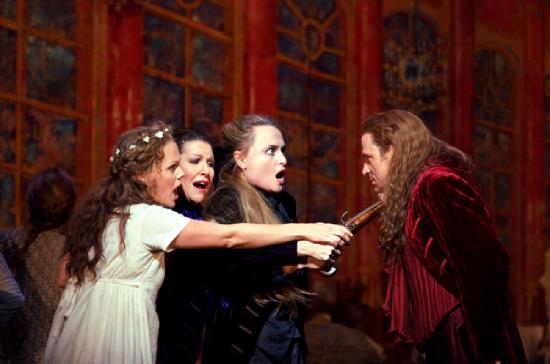
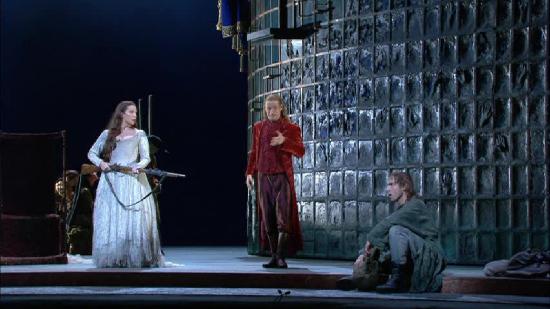
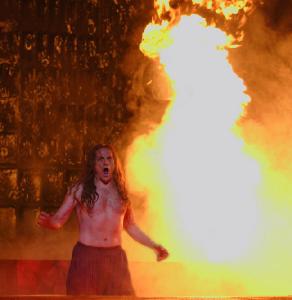
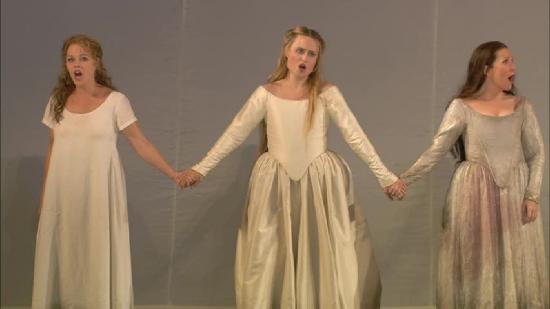
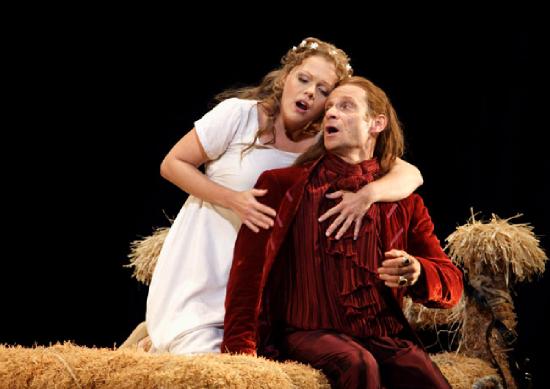
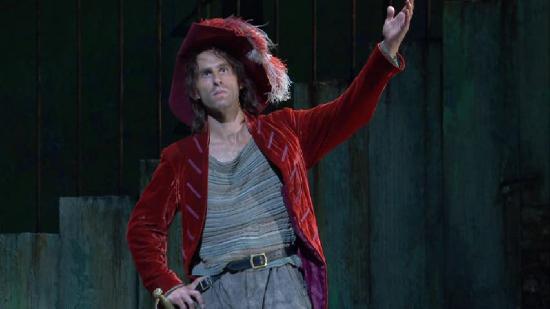
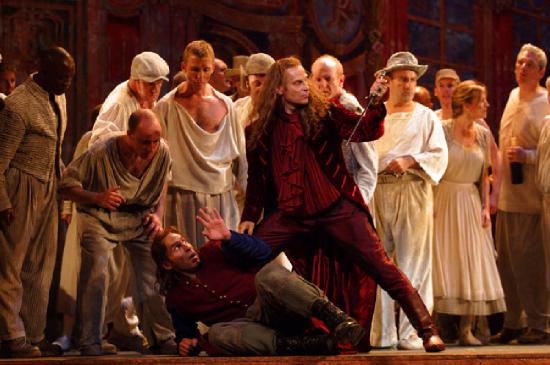
Your Opinions and Comments
Be the first to post a comment!